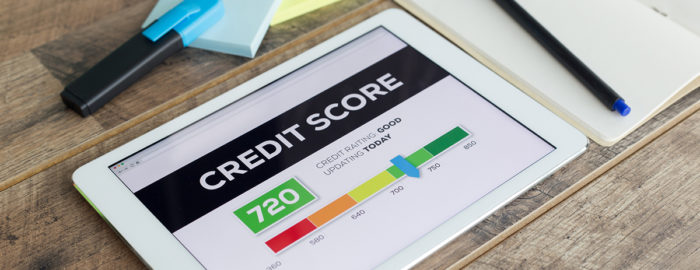A variable that helps a lender determine the likelihood of a loan being repaid on a timely basis is your credit score. This plays a large role. Credit bureaus will evaluate your creditworthiness using a FICO score. The higher the FICO score the better the borrower’s credit.
A borrower gets charged a mortgage rate based on their credit score. There is an inverse relationship between credit score and the interest rate charged. The higher your credit score the lower the rate and vice versa.
You can have two separate buyers who make the same income and purchase the same price home who may both be approved by a lender, but each may be charged a different interest rate based on their credit score.
Improving your credit score even by a few points can save you thousands of dollars over the life of your loan. A $350,000 mortgage at 3.5 percent has a P&I payment of $1,571.66. Improving your credit score to qualify for a 3 percent rate, would save $96.04 a month.
That would save $34,575 in interest over the life of the mortgage. Improving your credit score and shaving 0.25 percent off the rate would make it worthwhile.
The percentage of total credit used compared to the total credit available is called credit utilization. If you have a credit card with $10,000 available credit and have a balance of $2,500 on it, your utilization rate is 25 percent. Ideally, it should be 10 percent or below. This ratio accounts for 30 percent of your FICO score.
Credit utilization is calculated using the balance on the monthly statement so paying it off in full every month could still result in a high CU score. Some credit counselors suggest paying down the balance before the end-of-month statement comes out. A trusted mortgage professional can make specific recommendations like how to improve your credit utilization.
If your credit limits are lowered, your credit score can be adversely affected. Although you may have the same outstanding monthly balance you have had for years, it now becomes a larger percentage of your available credit and your score goes down. In my earlier example, if the available credit was lowered to $5,000 and your balance is $2,500, the credit utilization is now at 50 percent.
The largest contributor is your payment history and it counts for 35 percent of your FICO score. Payment history is an indication of how you will repay on time and as agreed, especially on mortgages, credit cards, student and car loans, and others.
Beware of the grace period, it could be a big shock that you have never incurred a late fee but got your score dinged because you did not pay on the actual due date.
Foreclosures, deeds in lieu of foreclosure, and bankruptcies will affect a borrower’s payment history if they appear on your credit report.
Americans are entitled to a free annual credit report by law from the major credit companies:Experian, TransUnion, and Equifax. AnnualCreditReport.com is the source for these federally authorized reports. During the Covid-19 pandemic, they are offering free weekly reports. Your bank may also offer you a FICO credit report as part of their services. Also, some budgeting programs such as Mint will report your credit score. Use all methods to get an average on your credit score because each will vary by several points.
Even if you are not buying a home or getting a mortgage currently, it is a good routine to check your credit report periodically to discover signs of identity theft early.
I can provide Insider Information on Fairfax VA homes for sale. Get you a FREE Market Snapshot Report of Your Northern Virginia Home’s Value, or Search All Northern Virginia Homes For Sale. Put that data you need at the tips of your fingers!


